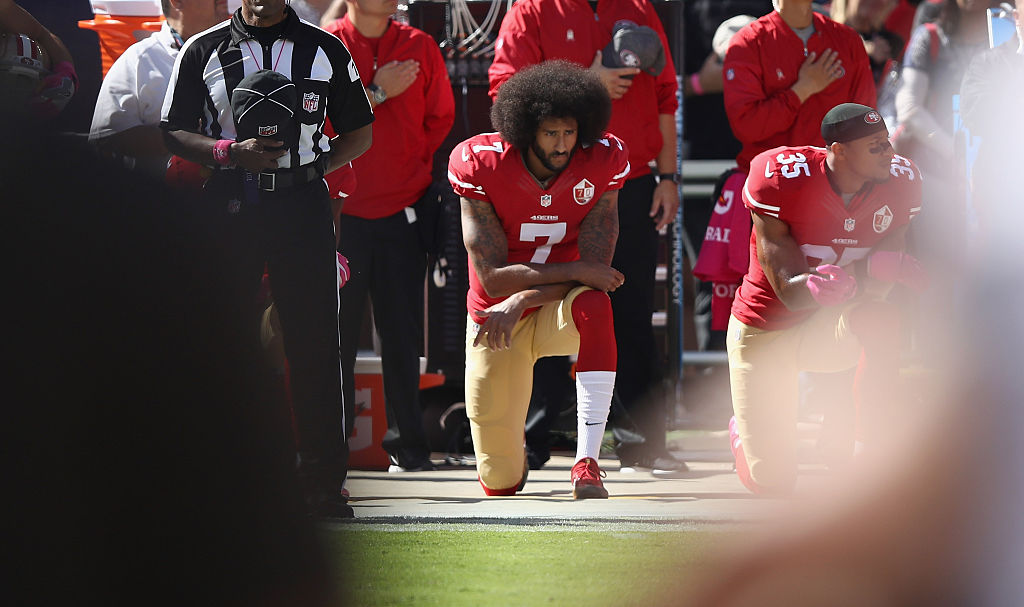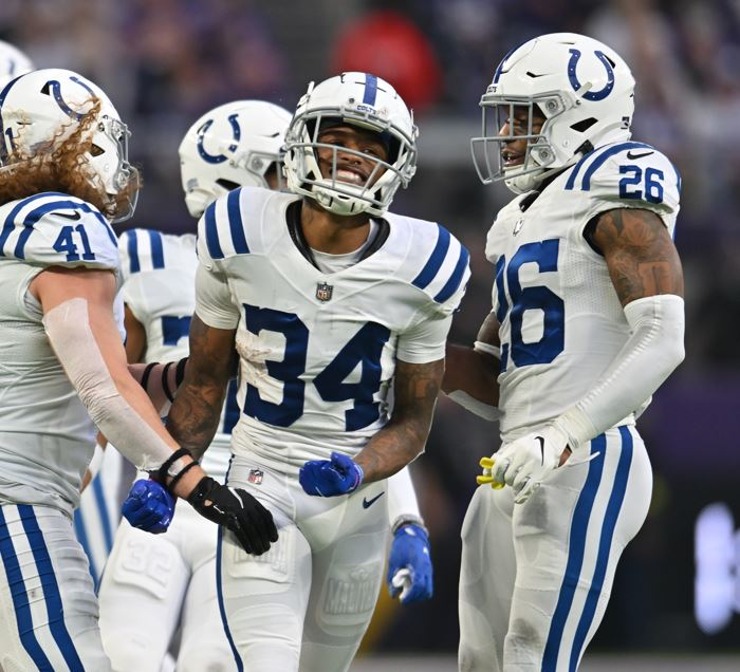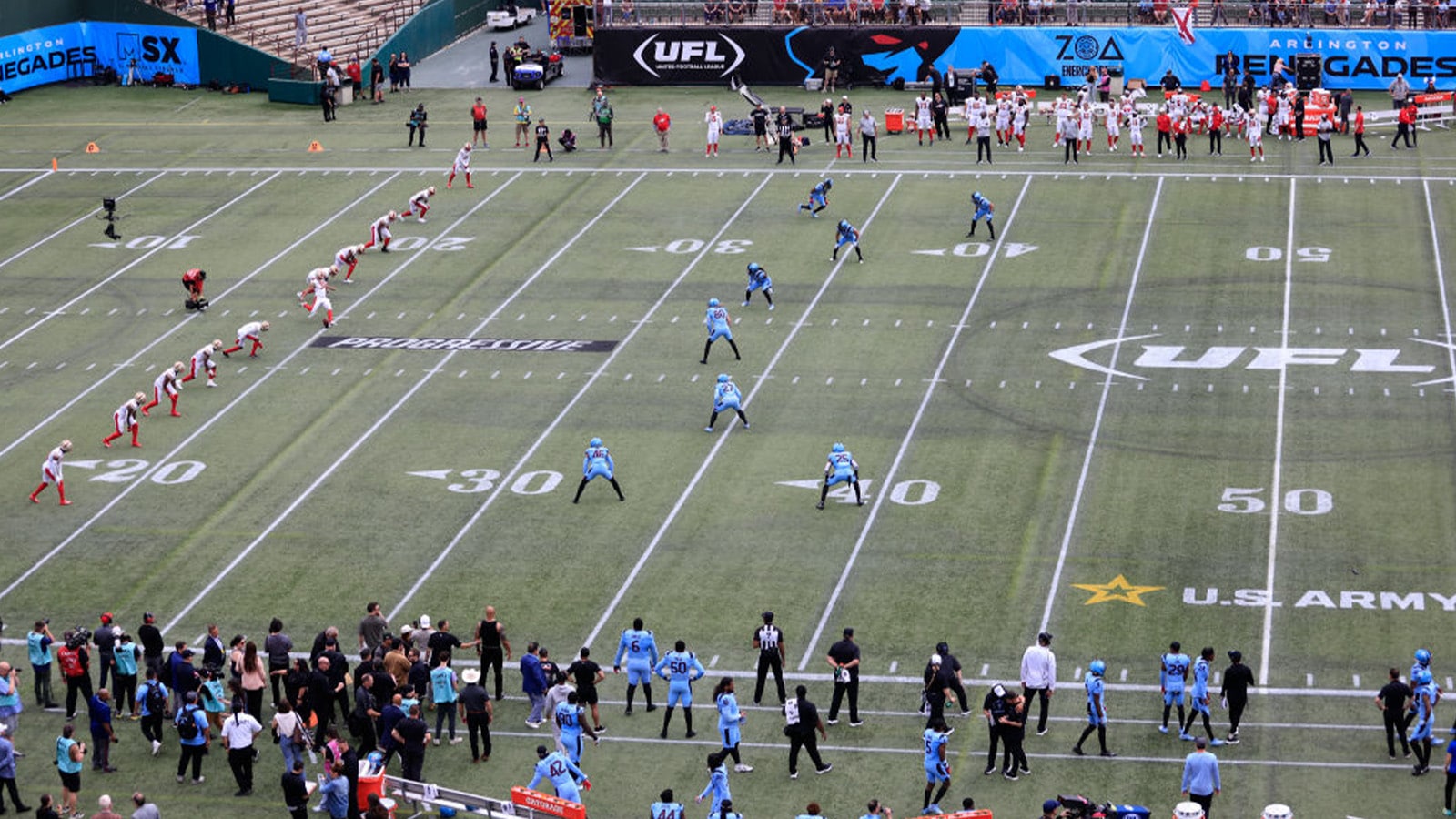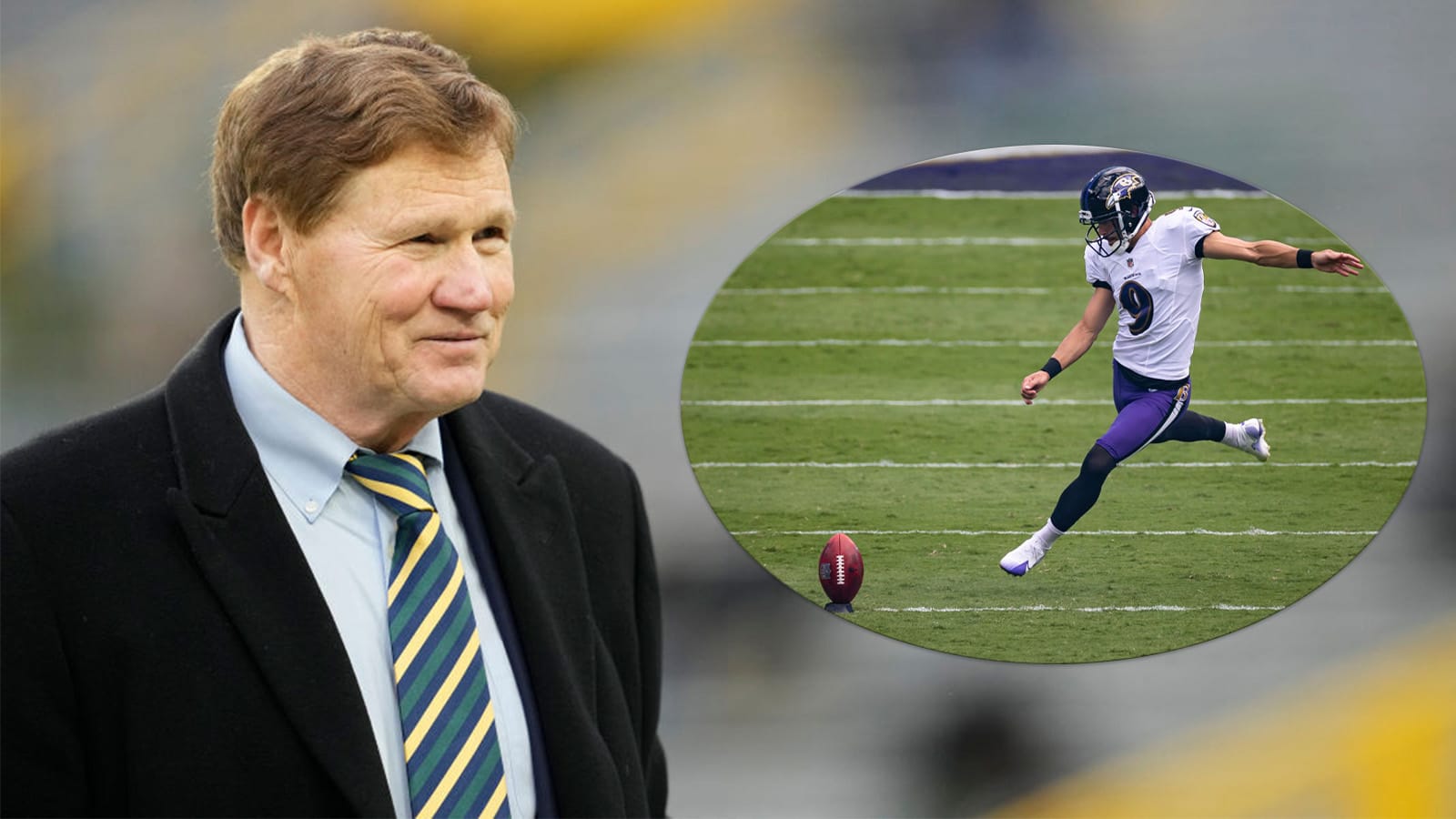
Colin Kaepernick Will Be Revered as an American Hero in the History Books
He·ro /ˈhirō/ noun — a person who is admired or idealized for courage, outstanding achievements, or noble qualities.
There have been all kinds of heroes in the relatively short 244 years of American history. Many are recognized for their achievements that made life easier, such as Thomas Edison, the Wright brothers, Henry Ford, and more recently, Bill Gates. Some made a difference not by a product, but through their actions, such as Susan B. Anthony, and Martin Luther King.
The world of sports has had its share of heroes like Muhammad Ali and Jackie Robinson, who both accomplished great things in and out of sports and were catalysts for change. While history is often difficult to see when you’re living in its midst, years from now history books will reflect Colin Kaepernick fits in this same category. Here’s why.
Jackie Robinson breaks color barrier in baseball
Jackie Robinson broke the color barrier in baseball when he joined the Brooklyn Dodgers in 1947. That move ended racial segregation in professional baseball, which had previously forced black players to play in the Negro leagues since the 1880s.
Robinson’s arrival in the Majors was an achievement by itself. Unfortunately, it was just the beginning of an often humiliating and dehumanizing journey that lasted for years. It started before he ever played a game as some of his Dodgers teammates suggested they would rather sit out than play alongside Robinson.
While some of his teammates treated him poorly, it was exponentially worse by opposing teams and fans, who would sometimes send him death threats. The St. Louis Cardinals threatened to strike if Robinson played and suggested they would spread the strike throughout the National League. Baseball officials stepped in and threatened to suspend any players that participated in such a boycott. The strike never happened.
On the field, Robinson endured racial epithets from the stands every time he stepped up to the plate. Whenever he took the field, he had to be aware of aggressive play from opposing players. In one game, Enos Slaughter deliberately spiked him, leaving a seven-inch gash.
Despite the enormous challenges he faced, Robinson let his play do the talking and went out and won the Rookie of the Year award in 1947 and NL MVP in 1949. He was inducted into the Hall of Fame in 1962.
While Robinson’s integration in baseball delivered a major blow to segregation and resulted in the collapse of other racial barriers, he often spoke out against Jim Crow laws. He criticized hotels that refused to let him stay with his teammates and teams that refused to hire black players. His voice made an impact as many hotels and restaurants where the Dodgers stayed integrated as a result.
Muhammad Ali becomes a conscientious objector
Americans hailed Cassius Clay a hero after winning the gold medal at the 1960 Summer Olympics. In addition to his talent in the ring, his confidence, quick wit, and rhymes endeared him to the country as a whole. That all changed in 1964 after he had won the heavyweight championship when he joined the Nation of Islam and changed his name to Muhammad Ali.
That decision upset many white Americans, but it was nothing compared to what happened three years later in 1967. That’s when a 25-year-old Ali refused to join the U.S. Army, citing his religious beliefs and opposition to the Vietnam War, which had widespread support at the time.
“I can’t take part in nothing where I’d help the shooting of dark Asiatic people, who haven’t lynched me, deprived me of my freedom, justice, and equality, or assassinated my leaders,” Ali said later.
After he refused to join the military, Ali was stripped of his titles, convicted of draft evasion, sentenced to five years in prison, fined $10,000, and banned from boxing for three years. Ali avoided jail as he appealed the decision all the way to the Supreme Court, which overturned the conviction in 1971. Unfortunately, there was no appeal on the boxing ban and Ali missed out on three prime years of his boxing career.
Colin Kaepernick’s place in history
With the benefit of time, Robinson is remembered as a trailblazer in baseball who paved the way for other black players by enduring repugnant behavior from teammates, opposing teams, and fans. His courage to stand up resulted in his No. 42 being retired from all of baseball. He was posthumously awarded the Congressional Gold Medal and Presidential Medal of Freedom in recognition of his achievements on and off the field.
Ali’s activism resulted in other athletes following in his steps, including American sprinters Tommie Smith and John Carlos in the 1968 Olympics. His controversial view on the Vietnam war at the time is widely accepted today. He was respected and beloved up until the time of his death in 2016. In 2001, Ali was presented with the Presidential Citizens Medal by President Bill Clinton and four years later in November 2005, he received the Presidential Medal of Freedom from President George W. Bush.
Colin Kaepernick’s journey features elements of the paths taken by Robinson and Ali. Like Robinson, he’s had to endure a variety of racial insults hurled at him online since he took a knee four years ago. And like Ali, he was forced out of his sport not by an official banishment by the league, but by an unofficial one implemented by club owners. It also happened in the prime of his career starting at age 29.
While the entirety of Kaepernick’s legacy is difficult to capture because it’s still being written, he has provided a general outline of how it will read. History will show that Kaepernick’s stand against police brutality and social injustice was a pivotal point in American history that sparked a substantive conversation on racism in America. Where that conversation goes and what results come from it are yet to be determined.



